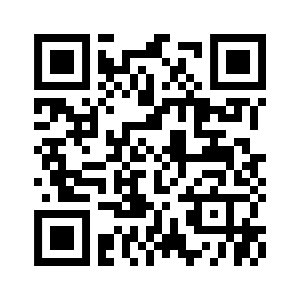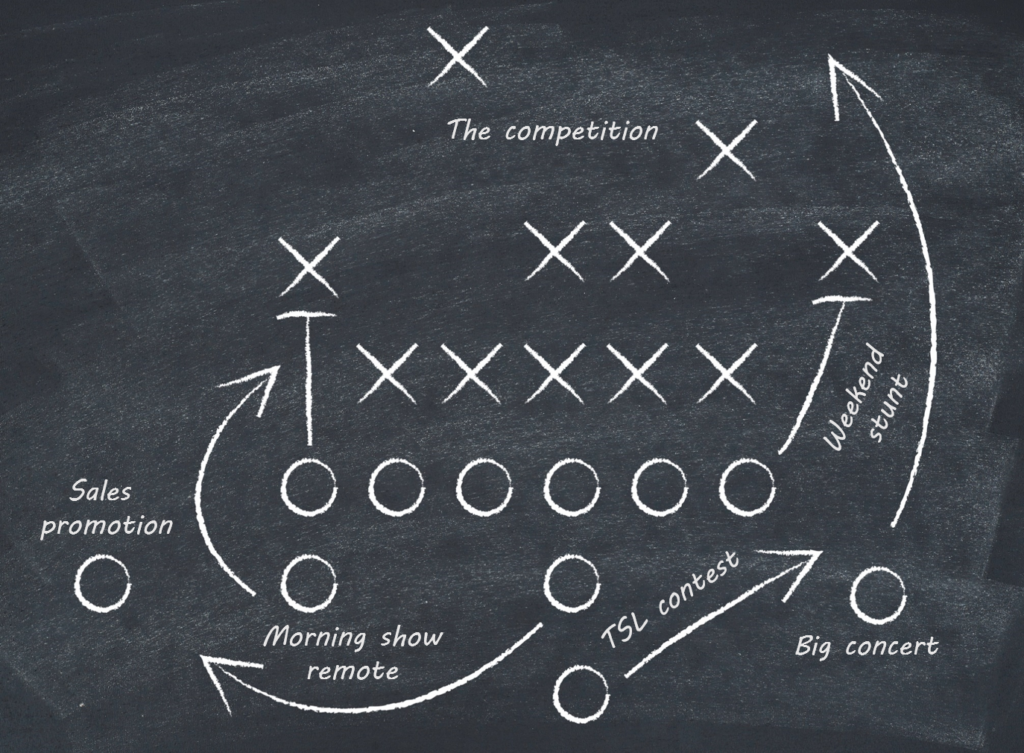The “Big Game” is this weekend, and barring unfortunate injuries, it should be a strong game. For today’s #TBT post, I went back into our cavernous JacoBLOG archives to find a Super Bowl post from five years ago.
Remember, it was those Brady-led Patriots versus the Philadelphia Eagles. Played in Minneapolis, it is considered one of the best Super Bowls of all time. The Eagles came out on top, 41-33 to win their first championship game since 1960. And in case you’re wondering, Justin Timberlake – sans the wardrobe malfunction – was that year’s halftime entertainment.
This Sunday’s contest is loaded with great players and smart coaches, and the Eagles are back in the Big Game, favored over the Kansas City Chiefs. As the economy appears to gather steam, this year’s lineup of expensive commercials – about $7 million a pop – will hopefully be as interesting as the game itself.
The big trend in marketing this year may be the QR code. Don’t say I didn’t warn you. We’ve been tracking this marketing phenomenon since its comeback during COVID. Our Techsurveys these past couple years have tracked QR code usage – and it’s impressive. The technology is also free!
COVID. Our Techsurveys these past couple years have tracked QR code usage – and it’s impressive. The technology is also free!
Our “blast from the past” post provides great “best practices” from the gridiron to the air studio. And I’m betting we’ll learn a nifty trick or two from how those QR codes are used by marketers. BTW, the over/under is 13 for QR codes starting with the pregame show through the awarding of the Lombardi Trophy after the game.
Meantime, grab of bowl of your favorite snack, something to wash it down with, and buy a square or two to keep in interesting. – FJ
February, 2018
“Failing to prepare is preparing to fail.” – Coach John Wooden
That was quite a game last night.
The never-count-them-out Patriots somehow managed to make the game interesting until the very last play of the game. But it was the upstart-against-all-odds Eagles that finally brought the Lombardi Trophy to the City of Brotherly Love. (And they’d better be damn happy about it!)
Most of this post was written before “The Big Game” last night. But the outcome doesn’t really matter. That because, win or lose, the Patriots always give a graduate level, textbook course on how to play the game. Yes, winning and losing is important. But what happened on the field yesterday – or on any given Sunday – was mostly predetermined by the plan and preparation that took place before it was played.
That doesn’t mean the talent, experience, and physicality of the players don’t matter – they’re a critical piece of a team’s success. But coaching, preparation, strategy, discipline, and focus are key ingredients in determining the final outcome.
And in the midst of mostly fluff coverage during the two weeks of pre-Super Bowl coverage over the past few weeks, The Boston Globe came through with an amazing analysis of how the Patriots prep for a typical game, super or not. In Ben Volin’s “Anatomy of a game plan: How the Patriots do it,” Bill Belichick opened the kimono (a bit) to give us a backstage look at how a storied football franchise executes their protocol and best practices.
I know many people hate the Patriots, citing issues with their players, coaches, and methods. But however you view them emotionally, the team has won an astonishing three-quarters of the games it’s played under Belichick. Of course, that includes five Super Bowls.
The analogies to radio in the Globe story are nothing short of breathtaking, even though the differences between a football game and a radio rating book are many. So, while the game is still fresh in your mind, let’s look at how Belichick’s organization got to the big stage yet again.
On the one hand, there’s only one team celebrating today. The other 31 are already thinking about next year. In radio, “winning” is defined in myriad ways. The #5 rated station in the market can end up as the top biller, if the sales strategy is a solid one.
But on the other, it’s important to point out that throughout most of the season, the Patriots (and the other 32 NFL teams) usually have one week to prepare for their next contest. In radio, we don’t have that luxury. The “game” is being played all the time. And while most stations these days take little breathers thanks to voicetracking, most are engaged around the clock.
Still, what Bill Belichick, his coaching staff, and his players have set up and executed during a week of prep time is analogous to what we’re trying to accomplish in radio every week, whether you’re in Baltimore, Binghamton, or Bakersfield.
 Here are a dozen key learnings from the Patriots’ brain trust and their players that have a direct impact on how we play the radio game:
Here are a dozen key learnings from the Patriots’ brain trust and their players that have a direct impact on how we play the radio game:
1. It starts with a plan
That sounds so fundamentally obvious, but whether you’re the Patriots or KISW, you need to have that big, expansive plan in place that guides everything you do. And then, of course, you have to execute it. Every team has a different personality – a product of its coaching staff and its personnel. It’s the job of the coach – or a station’s management team – to figure out the best path forward. Without it, stations simply execute a format without the larger strategy that is the difference between winning and losing.
2. But don’t be afraid to change it up
In football – as in radio – a predictable plan becomes obvious to the other guys. As Volin notes early in the article, “no team prepares better, and no team alters its attack more on a week-to-week basis” than the Patriots. “Planned unpredictability” is a key element that keeps the opposition off balance, while making it more entertaining for the crowd.
The “set it and forget it” mentality in radio ultimately fails when stations sound the same, day in and day out. Even a great strategy gets stale if it’s repeated again and again. Changing up the architecture, the production, the promotions, and the “surprise factor” elevates a team’s and a station’s ability to keep the competition off balance.
3. The onus is on management
The burden of game preparation and strategy is the responsibility of the coaching staff. While the players on the field have to execute the plays, the strategic burden is on the coaches – or in the case of radio, the GM, the PD, and the GSM.
In football as in radio, we’ve all seen teams fail, in spite of having the revenue and the talent it takes to win. Management – coaching – is everything. And without a solid management core, even stations with the prettiest studios, most experienced staffers, and impressive budgets often come up short.
4. Keep it fun
Although you’d never know it by looking at Bill Belichick’s visage, football – like radio – is fun. As hard as the coaching staff and the players work at the game of football, offensive coordinator Josh McDaniels reminds us, “It’s a ton of fun. If you didn’t enjoy it, it’s be hard to do this job, because there’s not many things in your life that you spend 19 hours doing.”
Same, of course, for radio – a challenging profession, but one that is fun – a key reason why so many of us got into it in the first place. In spite of the hardships, time commitment, and disappointments, finding a way to make it and keep it fun is central to how the game is played.
5. Review and correct
Looking back is the Monday regimen for the Patriots – and most NFL teams. You can’t properly prepare for the upcoming challenge without understanding what went wrong (and right) during the previous one. The Patriots’ position coaches watch the film, grade the players, and then talk it through.
On the radio side, aircheck sessions – painful as they can be – are the most effective way to move performance forward. It’s important to focus on what worked – and what didn’t. And it’s not just for the programming department. Sales pitches and presentations should be evaluated, too. You don’t learn and improve without grading your previous work.
6. Everyone knows their roles
In football, the coaching staff is immense because of the number of players and positions involved. But the Patriots divvy up responsibilities for both groups of players and plays. Everyone knows their role, and while the various coaches get input from one another, most are working mostly by themselves to hone their plans of attack.
These days in radio, there aren’t enough “role players” to go around, and many managers are doing double or triple duty (or more). Still, it’s important the key functions – including the obvious ones like music scheduling, as well as social media engagement – are owned by someone in the management chain. Dropped balls are the bane of everyone’s existence in football and in radio. And they often occur when managers aren’t accounting for all the responsibilities that go into running a radio station.
7. Technology matters
The Globe article makes a point to underscore the importance of tech in the Patriots’ scheme. Pro football has come a long way since the days of Lombardi, Landry, and Shula.
iPads and tablets are extensively used to manage the flow of information among the coaching staff, from stats to video that helps shortcut the most important takeaways. And by mid-week, the coaches have sent the game plan to the players.
But the players are involved with tech as well. A former Patriots players points out “We had iPads and stuff, so you can look at film from home.” Part of that is the prep process, but the other part if that the players will be asked about at a full team meeting each Wednesday.
That should be the equivalent of a jock meeting (or sales meeting where it’s not just a top-down presentation from the PD (or GSM), but an interactive session. As Volin notes, this is where (Coach Bill) Belichick puts his players on the spot with questions about the opponent.”
8. Talent outreach
As busy as the players are during the season, there are opportunities early in each week to get involved with community, promotional, and branding activities.
Unlike other professions, pro sports – and on-air talent – are the ambassadors to the community, to the fans, and to advertisers. And while the Globe analysis doesn’t delve deeply into this area, it’s clear it’s part of the weekly program.
Every radio station needs a community outreach plan, especially as airstaffs are streamlined. This is part and parcel of being talent, representing the organization.
9. Don’t overwhelm the players
Volin notes the Patriot’s Super Bowl opponent – the Eagles – run as many as 1,200 offensive plays and 1,100 defensive sets – way too many for the players to process – even with a two week prep period before the Super Bowl.
So, the information they need to know is boiled down to the key tendencies and events – not the small, picky details that can only confuse or get in the way. Every talent coach I’ve ever worked with recommends making sure a personality leaves a meeting or aircheck session with one key takeaway. Trying to cram too much information into a running back or afternoon host’s head almost always comes up short.
10. Shake up the presentation
By mid-week, the Patriots coaches have a game plan ready to show the players, often on PowerPoint, video, or actual “walk-throughs.” But the Patriots believe that every week’s roll-out to the players needs to be different.
Wide receivers coach Chad O’Shea explains, “We often change the way we present our information, because we never want anything to be stale.” Questions and feedback from the players are encouraged.
So, how many airstaff and sales meetings have a certain sameness? Breaking up presentations with video, PowerPoints, competitive airchecks, and other visual aids makes it more interesting, and facilitates learning. Bored DJs and lethargic salespeople translate to mediocre performances. It’s on the station’s management team to keep it interesting.
11. Talent needs to learn it
The Globe analysis leaves the reader with a great deal of respect for just how much goes into crafting each week’s strategic plan. Radio – while a different business- also requires research, competitive monitoring, talent coaching – many of these same disciplines Belichick’s staff embraces and exudes.
So, it’s essential the Patriots’ players – and a station’s air talent and sales staff – learn and retain … the first time.
Again, O’Shea reinforces that core need: “What we say is it’s very similar to testing at school. Once we teach and present something to them, once we install it, they’re responsible for it throughout the remainder of the week.”
12. Long-term planning
While it’s always all about the upcoming contest for NFL teams (“We’re taking it one game at a time”), some assistant coaches are assigned to prep for the next game – as many as 9 days away.
The emphasis on looking down the road to how the schedule will look is an essential part of the planning process. And so it is in radio. Even while executing a special weekend, a big promotion, or a sales event, thinking down the road is part of the planning process. Rating periods go on for weeks, and stations need to perform not just at certain points, but all the time.
For the NFL, it’s exhibition games, the 16-game schedule, and then (hopefully) the playoffs and Super Bowl. For radio programmers and sellers, quarters and years come and go, but the 24/7/365 nature of the business make it essential to keep looking ahead.
13. Plan, But Adjust
Even though the Pats didn’t make it into OT, here’s one bonus lesson from the coaches…
After all the prep an NFL team goes through during the week, the actual game may produce a different outcome. A team can fall behind early, in much the same way a radio station has a nasty month (or week) to kick off a ratings period. That’s pretty much what happened last night.
The Patriots know that changes and adjustments may be necessary – including scrapping the game plan early on. That need to adapt is key, as Coach Schuplinski notes, “If you come out in the first quarter and someone’s doing something totally different, you’ve got to be able to adjust.”
And that’s the case in radio, too. The competition changes up its music, makes a talent shift, or lands a major promotion – all of those are new variables that might necessitate looking at the plan differently.
The Patriots are aware their opponents have much the same resources – and that’s the case with the other radio stations and broadcasting companies in every market.
The Patriots expect and welcome those “audibles,” even if it means having to learn and executive something new at the 11th hour. Radio personalities and sellers should appreciate those strategic pivots from the GM, the PD, or the DOS.
Hopefully, “your team” is already planning their victory parade, you won your pool, watched a few entertaining commercials, ate a few nachos, and had a great time with friends and family.
But moving away from the emotional intensity of the Super Bowl, and taking a deeper look at what it takes to get there, there are great lessons for all of us in radio.
I’m not espousing you be like Belichick (much less dress like him) – for many of the reasons mentioned earlier in this post.
But as a strategist, tactician, manager, and competitor, you could do a lot worse.
Read Volin’s analysis here.
Thanks to former Beasley WROR/WBOS PD, Ken West, for sending me this story. And congrats to my Beasley Philadelphia friends on a well-deserved win in 2018, and good luck this Sunday. – FJ
- Media And Technology In 2025: Believe It Or Not! - April 18, 2025
- In Radio, You Just Never Know - April 17, 2025
- The Secret To Making A Great Podcast (And Great Radio) - April 16, 2025






Leave a Reply